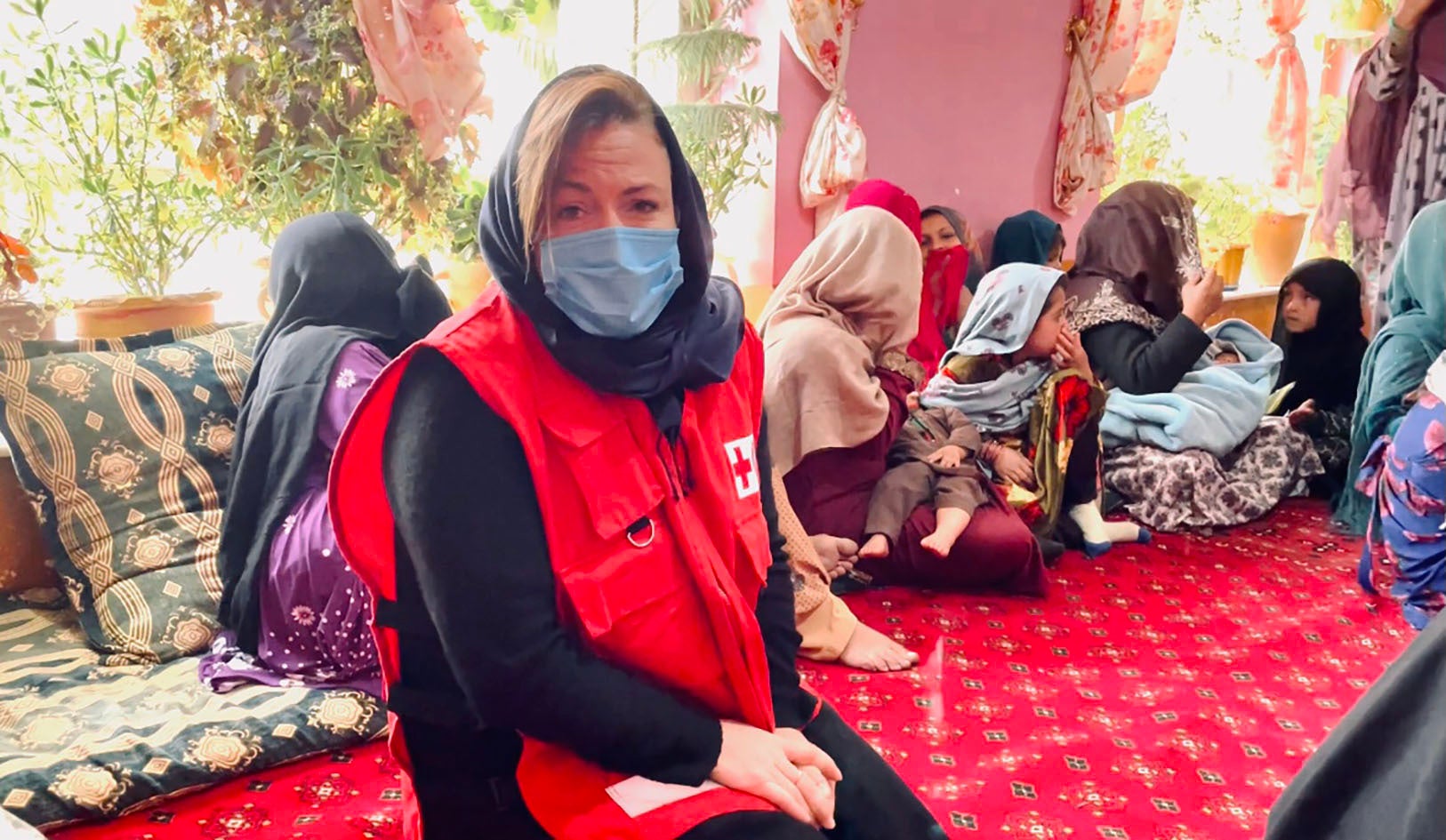I just returned from Afghanistan – few words can describe the humanitarian catastrophe unfurling
The country is on its knees, the economy in free fall and hope slipping away. The future has never been bleaker


Your support helps us to tell the story
From reproductive rights to climate change to Big Tech, The Independent is on the ground when the story is developing. Whether it's investigating the financials of Elon Musk's pro-Trump PAC or producing our latest documentary, 'The A Word', which shines a light on the American women fighting for reproductive rights, we know how important it is to parse out the facts from the messaging.
At such a critical moment in US history, we need reporters on the ground. Your donation allows us to keep sending journalists to speak to both sides of the story.
The Independent is trusted by Americans across the entire political spectrum. And unlike many other quality news outlets, we choose not to lock Americans out of our reporting and analysis with paywalls. We believe quality journalism should be available to everyone, paid for by those who can afford it.
Your support makes all the difference.Many words have been used to describe what is happening in Afghanistan. Few can describe the true scale of the humanitarian catastrophe unfurling.
Over the past month, I’ve travelled across Afghanistan. The landscapes are beautiful, but the reality facing its people has never been bleaker. The country is on its knees, the economy in free-fall and hope slipping away. At the heart of the crisis is an ongoing severe drought, a lack of cash and functioning banking system and the aftershocks of the pandemic, conflict and displacement.
On my travels, I met many Afghan women – strong, resilient, and proud. While their sons and men are forced to work away, they run communities. Few of them feel confident enough to venture out freely, even though the guns are now silent, but they are leaders in their own right. They are anchors of families of up to 12 members. They organise, feed, care and know better than most what aid is needed and how it should be delivered.
I met many of these women in remote clinics run by the Afghan Red Crescent. The mobile community clinics, today threatened by lack of funding, are their only access to basic health services.
As we sat on the floor surrounded by sick children, they spoke with a resignation I’ve rarely observed. They’ve had to cut down on wood supplies for heating despite the snow beginning to fall. Most are cutting down on food portions because they just don’t have enough cash. In the worst cases they are feeding their children with potato peels.
As a result, many brought in children under the age of five who are already showing signs of malnutrition. Sunken eyes, tired limbs, faces without the sparkle and mischief that children share universally. In the tented camps hosting some of the 3.5 million of the country’s displaced, the situation is even more desperate.
Afghanistan is in the eye of a storm. The severe drought that started two years ago is affecting 80 per cent of the country. Hunger is everywhere, jobs have been lost. Since the transition in August, the sanctions imposed by the international community are sending an already fragile economy into free-fall. There isn’t any cash, salaries haven’t been paid in four months and there just isn’t any financial oxygen.
The needs in Afghanistan aren’t just about food. The situation is creating a new wave of vulnerabilities requiring even more sophisticated humanitarian responses, particularly for women and children in increasingly vulnerable situations. These responses rely on working with national humanitarian organisations such as the Afghan Red Crescent, which is embedded at the heart of the community.
The charity is more resolute than ever on ensuring every penny is spent on those at the margins and who are most vulnerable. 3,000 tonnes of food have just been distributed to priority areas before they are cut off by the winter – areas struck by drought, conflict and displacement such as Bamiyan, Badghis and Panjshir.
To keep up to speed with all the latest opinions and comment sign up to our free weekly Voices Dispatches newsletter by clicking here
Aid should be delivered on a needs basis alone, free of foreign policy, national security or economic considerations. That’s why the Disasters Emergency Committee Afghanistan Crisis Appeal is so crucial now, raising funds for emergency nutrition support and basic commodities for millions who need it.
It will take courage to pursue this approach in Afghanistan. Of course, it’s complicated. But history will judge us on the courage we will collectively have to save lives at a time of great need. When hunger, winter and fear of the future are everywhere, we need to keep the impact of what we do at the heart of our decisions. We must listen to these women and the voices of the 22 million people in need before we reach a tipping point. After that, it will be too late.
To support the DEC Afghanistan appeal, please visit dec.org.uk
Maryann Horne is a senior humanitarian advisor with 20 years experience in conflict zones. She has returned from a field mission in Afghanistan where she supported the Afghan Red Crescent Society
Join our commenting forum
Join thought-provoking conversations, follow other Independent readers and see their replies
Comments